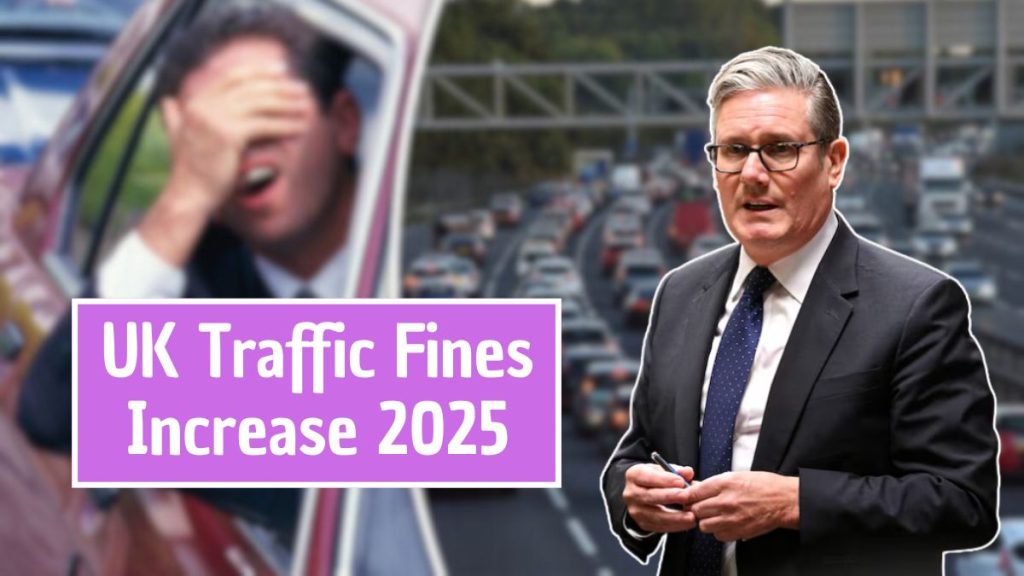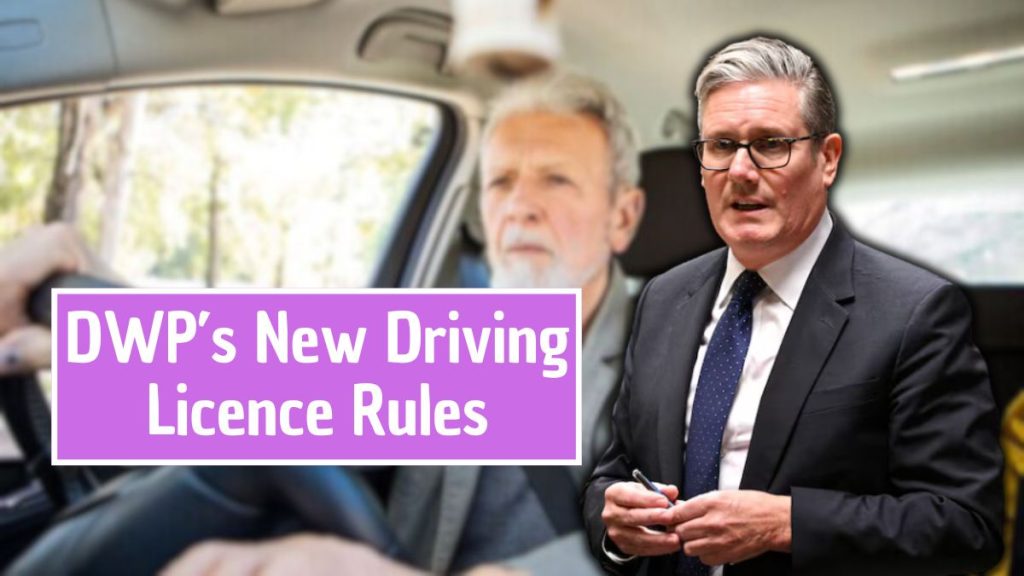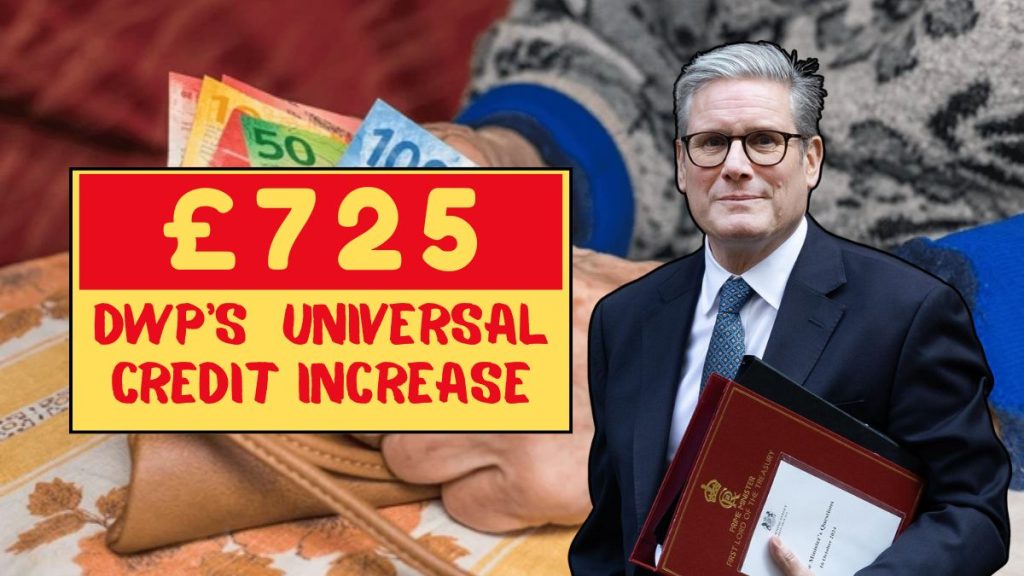From October 2025 the UK government will introduce a new set of driving licence rules specifically for drivers aged 60 and above. These updates, confirmed by the Department for Transport (DfT) and DVLA, aim to strengthen road safety, simplify the renewal process, and help older motorists stay independent while meeting new medical and legal standards.
The changes come as the number of senior drivers continues to rise — with more people staying active and driving later in life. Understanding the new system early will help motorists avoid penalties, plan renewals efficiently, and maintain their right to drive safely.
Why the Government Is Updating the Rules

The government’s decision follows a comprehensive review of road safety statistics and ageing trends. More Britons than ever before are driving into their 70s and 80s, but inconsistencies in the existing renewal system left gaps in how health and age-related conditions were assessed.
The new regulations aim to make the renewal process more consistent and medically accurate, ensuring that health conditions such as deteriorating eyesight, diabetes, or heart issues are properly monitored — without unfairly targeting older drivers.
Officials stress that the changes are about safety and support, not restricting mobility. The reforms are intended to help older drivers continue enjoying their independence responsibly.
New Renewal Cycle for Senior Drivers
Under the updated framework:
- Drivers aged 60 to 69 will need to renew their driving licence every five years, instead of the current ten-year renewal cycle.
- Drivers aged 70 and above will continue renewing every three years.
The shorter renewal period allows the DVLA to monitor health changes more effectively while reducing administrative backlogs. Senior drivers are advised to check their licence expiry date now and plan renewals ahead of time to avoid driving illegally.
Medical Declarations to Become More Detailed
One of the most significant updates is the introduction of an enhanced medical declaration form. From October 2025, drivers over 60 will need to complete a simplified but more comprehensive questionnaire when renewing their licence.
They must declare conditions including:
- Eye or vision issues
- Diabetes
- Heart disease or stroke history
- Neurological or mobility disorders
To streamline verification, the DVLA is launching a digital medical platform that will allow GPs to upload health confirmations directly, cutting down paperwork and wait times.
Mandatory Vision Tests Every Two Years
Starting October 2025, all drivers aged 60 and over will need to show proof of an eyesight test completed within the past two years when renewing their licence.
This is not a driving test, but a vision assessment by a qualified optician to ensure the driver meets legal sight standards. Those who fail to meet the minimum eyesight requirement will be referred for further testing or advised to surrender their licence temporarily until their condition improves.
This move, according to the DVLA, is designed to prevent accidents caused by undiagnosed visual impairments, a growing concern in recent safety reports.
Driving Fitness Assessments for Certain Applicants
In addition to vision checks, the DVLA will have the authority to request driving fitness assessments for some motorists. These short evaluations are not full driving tests but rather practical assessments of a driver’s ability to respond to hazards, maintain awareness, and handle a vehicle safely.
Such tests will be conducted at regional assessment centres and are mainly intended for applicants who declare specific medical conditions. Passing the assessment reassures both the driver and authorities that they remain safe behind the wheel.
Going Digital: The New Licence Renewal System
The government plans to modernise the renewal process by prioritising online applications. The DVLA’s secure digital platform will allow senior drivers to:
- Complete renewals step-by-step online
- Upload medical and vision documents digitally
- Receive instant confirmation and updates
While paper renewals will still be available, they may take longer to process. The DVLA recommends setting up a digital account early to make the October 2025 transition smoother.
Costs and Fees: What Drivers Should Expect
The renewal fee itself will remain affordable, but small adjustments are expected to cover new verification and health-check systems.
Drivers should also budget for the cost of optician vision tests, which are separate from the DVLA charge. However, the government has announced discounted or free eyesight tests for low-income pensioners, ensuring that financial barriers do not prevent compliance.
Penalties for Ignoring the New Rules
Failing to renew your licence on time or driving without a valid one after October 2025 can result in:
- Fines up to £1,000
- Penalty points added to your driving record
- Invalid insurance coverage
- Potential prosecution in the event of an accident
To avoid penalties, older motorists should mark renewal dates clearly, keep renewal confirmation receipts, and avoid driving if their licence has expired or is under review.
Extra Support for Senior Drivers
Recognising that these changes may feel overwhelming, the DVLA and local councils are launching a Senior Driver Support Programme.
This initiative will include:
- A dedicated helpline for renewal assistance
- Free leaflets and guides distributed through GP offices, pharmacies, and libraries
- Volunteer driving mentors to help older motorists prepare for assessments or refresh driving knowledge
The programme aims to make the transition simple and supportive, ensuring that no one loses their independence due to confusion or lack of access.
Day-to-Day Impact on Older Drivers
For most senior motorists, the rule changes will not significantly alter daily driving routines. The focus remains on keeping licences valid, safe, and up to date.
However, the added requirements — such as eyesight tests and shorter renewal cycles — will require better organisation. It’s wise to set reminders, schedule regular health checks, and keep all relevant documents in one place.
How to Prepare for October 2025
If you are approaching age 60 or are already within that range, begin preparing now to ensure compliance with the new rules:
- Book an eyesight test at a local optician before your next renewal.
- Check your licence expiry date to plan your renewal early.
- Review your medical history and ensure GP records are up to date.
- Create a DVLA digital account to manage renewals faster.
- Seek help from a trusted family member or local digital support centre if you’re not comfortable using online forms.
Proactive preparation will prevent last-minute stress and guarantee uninterrupted driving privileges.
Key Benefits of the Updated Rules
While the new measures may seem like extra steps, they offer significant long-term advantages for both motorists and public safety.
Benefits include:
- Faster processing and fewer administrative delays
- Improved safety through regular vision and health checks
- Greater confidence for senior drivers on the road
- Simplified renewals via the DVLA’s digital portal
- Better public trust in older motorists’ driving ability
Ultimately, the changes are designed to protect senior drivers and ensure they can continue to drive safely and independently.
The Bigger Picture: Safety and Independence
The 2025 driving licence reform reflects the government’s broader strategy to balance road safety with personal freedom. Officials emphasize that older drivers are not being targeted — rather, they are being supported through clearer systems, stronger medical guidance, and easier digital access.
By complying with the rules, senior motorists demonstrate their commitment to responsible driving and contribute to a safer, more inclusive transport system for everyone.
FAQs: UK Driving Licence Rules for Over-60s (October 2025)
Q1. When do the new rules for drivers over 60 take effect?
The updated driving licence regulations will officially come into force from October 2025 across the UK.
Q2. How often will I need to renew my licence after turning 60?
Drivers aged 60 to 69 must renew every five years, while those aged 70 and above will continue renewing every three years.
Q3. Will I need to take a new driving test?
No. You will not need to take a full driving test. However, the DVLA may request a short fitness assessment in certain medical cases.
Q4. Do I need a medical certificate from my doctor?
You will need to complete a medical declaration form, and your GP can digitally verify the information directly with the DVLA.
Q5. What happens if I fail to renew on time?
Driving with an expired licence after October 2025 could lead to fines, penalty points, and invalid insurance coverage.



















